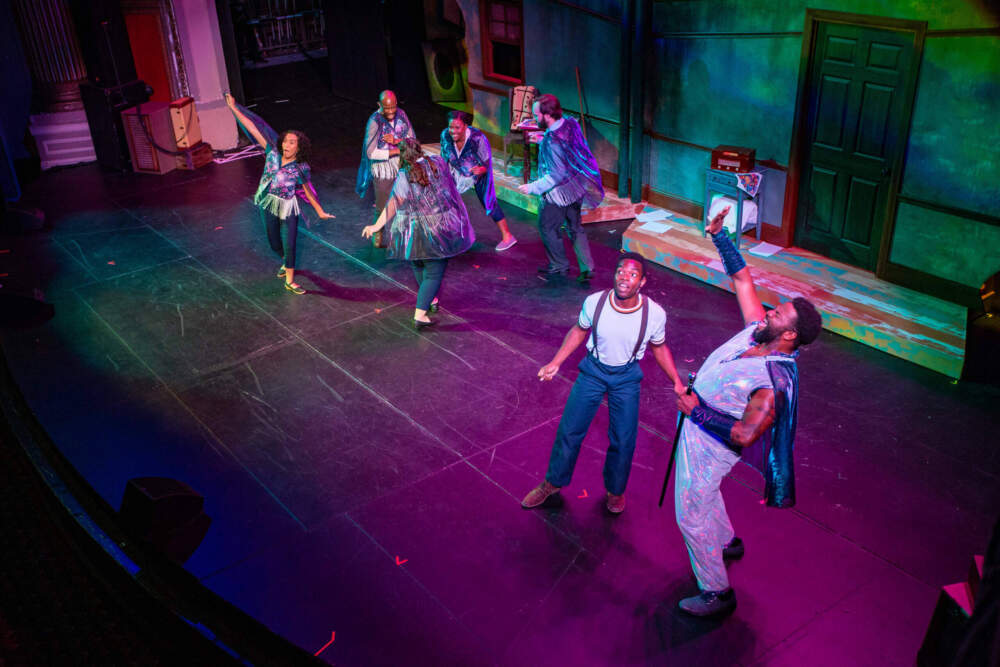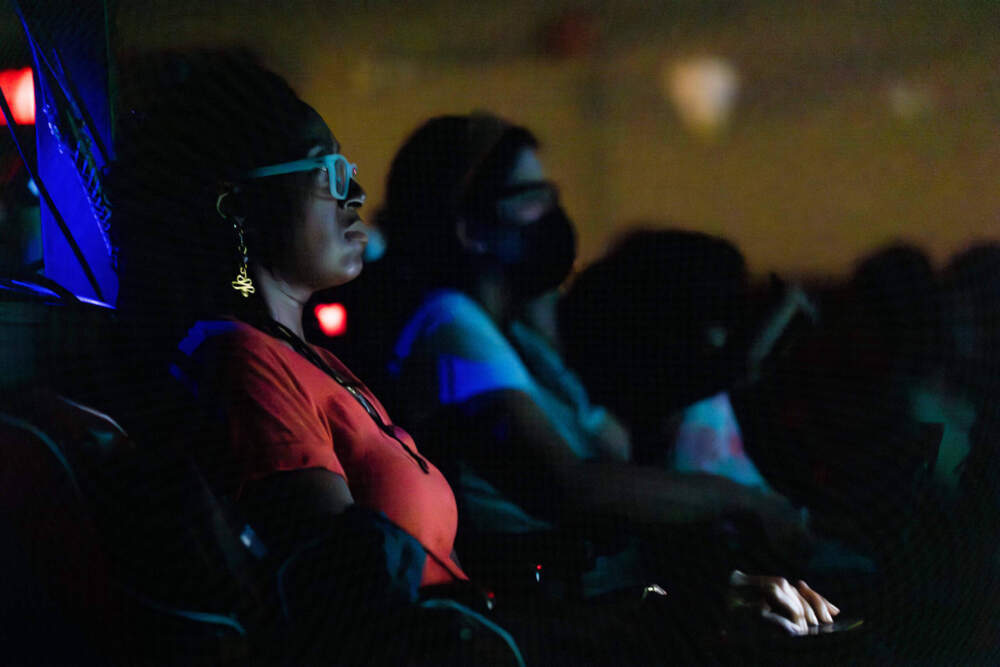Advertisement
Boston's Company One awarded $1.25 million to 'chart a new path' for American theater

Boston's Company One Theatre is part of a group that received a $2.5 million grant from the Mellon Foundation it will use to explore new models of theater-making that center marginalized artists and audiences. The grant will be shared with four other American theaters.
The five small and mid-sized theaters got together in the spring of 2023. Like theaters all over the country, they were contending with the end of federal pandemic arts funding, the collapse of the subscription ticketing model and dwindling audiences.
“We're all new play theaters and, specifically, we've watched some significant new play houses collapse over the last year and a half,” said Company One artistic director Shawn LaCount. “We think there may be value in partnering, that we're going to be stronger together.”
The group applied for the Mellon funding together. The cohort comprises Boston’s Company One Theatre, Cleveland Public Theatre, San Francisco's Crowded Fire Theater, D.C.-based Mosaic Theater Company and Perseverance Theatre in Alaska. The Mellon Foundation refers to the group as the Future of American Theatre Cohort.
Each theater will receive $500,000 over two years. LaCount described it as an “exploratory” grant that would support plans for theater leaders to visit and learn about each other’s operations.
“We're going to spend a little time at each theater,” LaCount said. “That theater is going to do a master class on a very specific thing that they do.”
Each cohort member brings a different specialty to the mix, all with a social justice bent. For instance, Crowded Fire Theater is run by multiple artistic producers and managers who share leadership responsibilities, while Perseverance Theatre foregrounds the experience of Alaska’s Native community in its work.

“There's a beautiful coalescing when you have multiple different theaters and models regionally, who have their finger on the pulse of one element of something, coming together to try to unify and strengthen,” said Company One associate artistic director Summer Williams.
The goals of the cohort get at the crux of the problem facing American theaters in a moment when anti-racist mission statements adopted in the wake of George Floyd’s murder collide with the need to earn money.
“It has to do with a nonprofit art structure that's based on white wealth. And it's based on some systems that are contradictory to some of the social justice values that are being imposed upon the institutions,” LaCount said. “How do you serve a broader, more diverse – socioeconomically, racially, gender-wise – community, and still pay the bills?”
This month, Company One also received two grants from the city of Boston, totaling $500,000, to support its three-year summer residency at the Strand Theater in Dorchester and a year-long residency on City Hall Plaza. The theater also received $250,000 to support a partnership with the Boston Public Library, where it will produce free public programs and performances.
For Company One, the windfalls represent a major endorsement of its mission to attract younger and more racially diverse audiences and offer all of its programming for free or pay-what-you-want.
As part of the Mellon cohort, the organization aims to pioneer a new model for American theater.
“The ultimate goal [is] a little scary to say out loud,” LaCount said. “Is there a totally new path forward?”
This story as been updated to clarify that the Mellon Foundation refers to the group of theaters as the Future of American Theatre Cohort.
